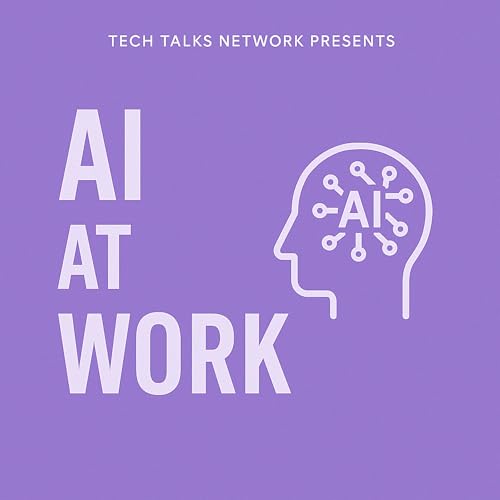What if the most important jobs of the next decade already exist, but we just have not named them yet?
In this episode of AI at Work, I sit down with Marinela Profi from SAS to unpack how artificial intelligence is reshaping work at a deeper level than most headlines suggest. We are not just talking about tools, automation, or faster workflows. We are talking about new roles, new decision structures, and a fundamental shift in how humans and machines collaborate inside modern organizations.
Marinela brings a grounded, enterprise-tested perspective to agentic AI, cutting through the confusion that still surrounds the term. She explains why large language models are not agents, why autonomy is often misunderstood, and why most successful AI systems will always keep humans in the loop. We explore how agentic systems differ from traditional AI, how deterministic guardrails and probabilistic models must work together, and why governance needs to be designed into systems from day one rather than bolted on later.
One of the most compelling parts of this conversation is our discussion on future roles. A few years ago, no one imagined titles like cloud governance architect. Marinela explains why roles such as AI decision designers and AI experience designers are likely to follow a similar path. These are not abstract ideas. They are practical responses to real challenges organizations face as AI systems begin to act, decide, and operate at scale.
We also dig into where teams tend to go wrong. Too many organizations rush from pilots to hype without addressing data readiness, orchestration, or accountability. Marinela shares real examples from regulated industries, including banking, insurance, telecoms, and manufacturing, where agentic AI has moved from experimentation into production by focusing on decision workflows rather than flashy prototypes.
This is a conversation for CIOs, CDOs, business leaders, and professionals who want to understand what AI means for work beyond surface-level narratives. It is also for students and early-career listeners who want to prepare for roles that are still taking shape, but will soon be unavoidable.
If AI is becoming an expected skill rather than a specialist one, how do you prepare yourself and your organization for work that is already changing in front of us?
I would love to hear your thoughts after listening. Where do you see human judgment becoming more important as AI systems grow more capable, and which future roles do you think we will be talking about next year?
Useful Links
Connect with Marinela Profi
SAS Website
Follow SAS on LinkedIn
Thanks to our sponsors, Alcor, for supporting the show.
 34 m
34 m 25 m
25 m 25 m
25 m 24 m
24 m 37 m
37 m 30 m
30 m 32 m
32 m 42 m
42 m
